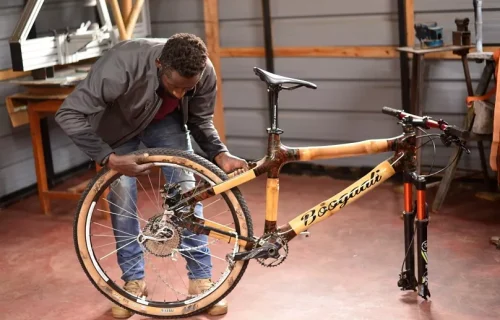Opportunity:
Uganda
Uganda provides unique venture and investment opportunities post Covid-19 within its manufacturing sector due to its fast growing market size, highly competitive labour costs and resource abundance, the time is now to think, Uganda! Despite, the global economic slow-down due to the pandemic and with Uganda emerging from one of Africa’s strictest lockdowns the obvious business uncertainty will be coupled with enthusiasm to get back to work and partnering for new opportunities.
The following are three specific areas, identified for opportunity:

Invest in Bamboo:
In rural Uganda, bamboo is readily abundant and low-cost. It’s a naturally strong fiber, light-weight and highly elastic. It’s ideal for the production of household products. Opportunities include cutlery and other dinning related utensils. This venture supports the development of non-plastic alternatives due to Uganda’s ban on select plastic items enabling both B2C and B2B lines of business development and opportunities for regional expansion to neighbouring Kenya and Rwanda of which have similar bans on single-use plastics. Additionally, it is a versatile resource for construction purposes such as for bridges, scaffolding and lodging. The Government of Uganda has considered the building of hotels and lodges in key tourism sites across the country as a ‘bankable idea’ for foreign and local investors and the utilisation of bamboo provides real opportunity to seize upon.
Invest in Bikes:
Peddle bikes are a critical vehicle of mobility for transport of persons and goods throughout urban and rural areas across Uganda as well as the entire East Africa region. The capital city of Kampala even introduced bike lanes in 2015 with Kigali, Rwanda shortly after doing the same. Opportunities range from the repair, re-selling and (re-)production of new or used bicycles that are affordable (less than 150 dollars) and leveraging rent-to-buy schemes. With spare parts readily available and access to bike technicians, ready for upskilling the growth potential is massive. Examining the Kampala market alone, competition is minimum and prospective business lines of B2B, B2C and B2NGO are encouraging with an aggressive go-to-market strategy. Investment in peddle bikes is not only a business opportunity but generates significant social impact and societal transformations.
Where to Manufacture?
Industrial parks and ‘free zones’ have been popular economic tactics by African governments over the last few decades working to replicate the success of China since the 1980s. The Government of Uganda has planned 27 industrial parks of which land has been acquired and physical plans have been designed for 9 locations. In these industrial parks, firms are offered renewable land leases at a discounted rate along with core infrastructure (roads, utilities) provided by the state. Another option is a ‘Free zone’ status which means firms are not subject to customs duties on imported or exported goods and are eligible for on-site customs inspection. Tax holidays and corporate income tax incentives are available in free zones and industrial parks.



For more information on how to capitalise on these opportunities or to learn more how Stepchange Africa can help your business operate, invest or expand in Uganda, contact us today.
Manwaring, Priya, Special Economic Zones: Policy Considerations for Uganda. International Growth Centre, 2020
